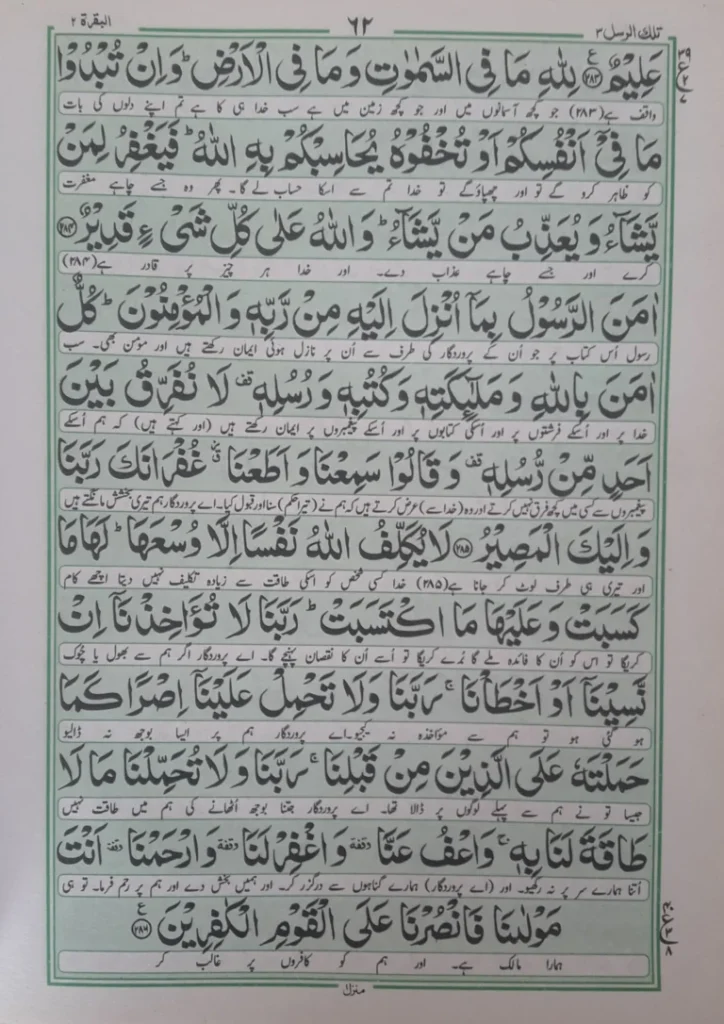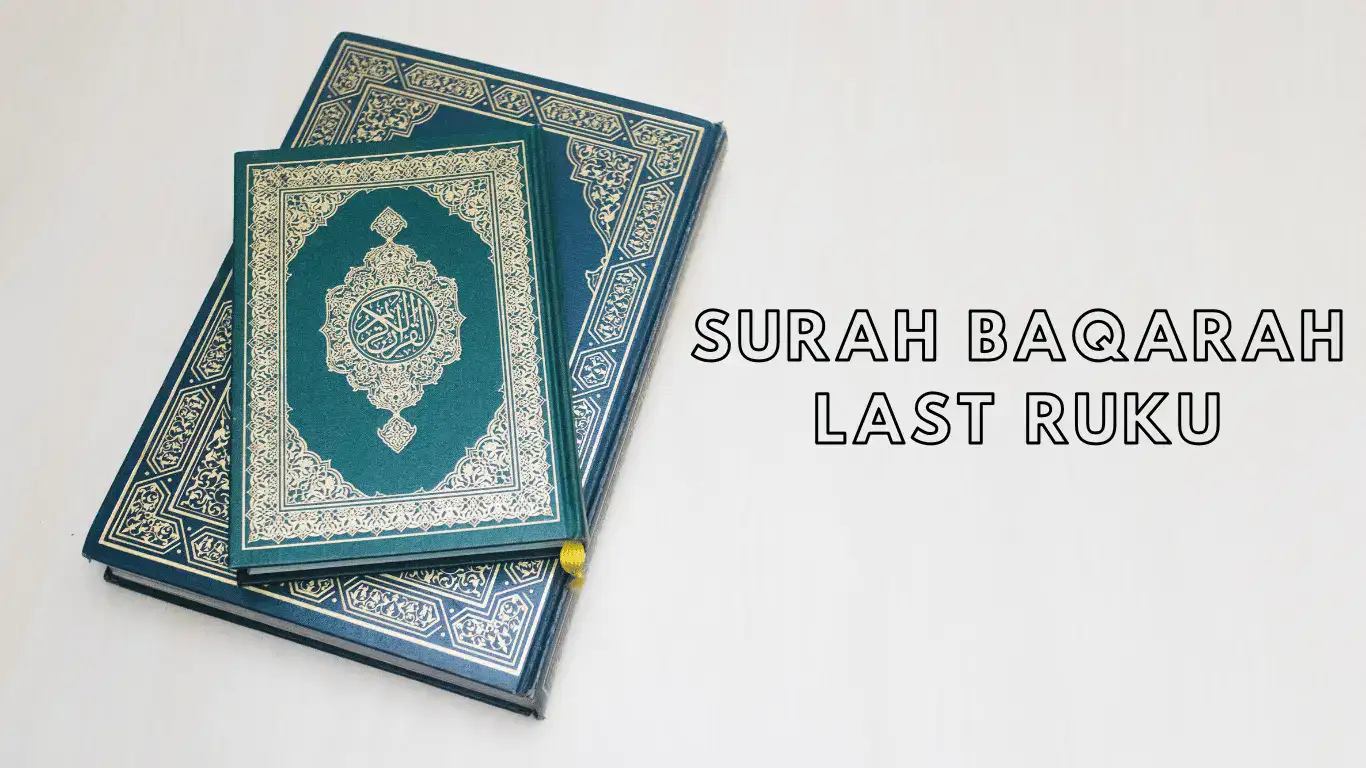The last Ruku of Surah Baqarah (Verses 284-286) holds immense significance in Islam. These concluding verses of the longest chapter in the Quran are known for their powerful message of faith, trust in Allah, and supplication for His mercy. This Ruku is recited for protection, guidance, and to strengthen one’s connection with Allah.
Reciting this surah brings numerous spiritual benefits. The Prophet Muhammad (PBUH) has emphasized the importance of these verses, stating that whoever recites them at night will be protected by Allah. These verses contain profound wisdom, highlighting the omnipotence of Allah, human accountability, and the comprehensive mercy of Allah. Let’s explore the meaning, significance, and benefits of the last Ruku of Surah Baqarah.
| Surah Fatiha 1st Chapter of the Quran |
| Surah Baqarah last 2 Ayat with Urdu translation |
| Surah Baqarah Last 3 Ayat with Urdu Translation |
| Last 10 Surahs of Quran: A Divine Conclusion |
Significance and Benefits of Reciting the Last Ruku of Surah Baqarah
The last Ruku of Surah Baqarah is revered for its spiritual strength and numerous benefits. Some of the key virtues include:
- Protection from Harm: Reciting these verses before sleeping shields a person from evil and brings divine protection through the night. It is a powerful shield against negative influences.
- Forgiveness of Sins: These verses emphasize Allah’s mercy and forgiveness, and reciting them is a way to seek pardon for sins and mistakes.
- Strength in Faith: These verses reinforce the core beliefs of Islam—faith in Allah, His angels, and messengers. Reciting them boosts one’s spiritual conviction and connection with the Creator.
- Comfort in Hardship: The assurance that Allah does not burden anyone beyond their capacity provides immense comfort, especially during difficult times. The supplication in the last verse is a plea for ease and mercy in the face of life’s challenges.
- A Daily Source of Blessing: Regular recitation of these verses invites barakah (blessings) into one’s life and ensures that Allah’s guidance and mercy are always near.

How to Incorporate the Last Ruku of Surah Baqarah in Your Life
Reciting this surah daily is a simple yet powerful practice. Here are a few tips to make it a part of your routine:
- Before Sleep: One of the best times to recite the last Ruku is before going to bed. The Prophet Muhammad (PBUH) recommended this, promising Allah’s protection for the night.
- After Salah (Prayer): You can also recite these verses after your obligatory prayers, particularly after Fajr or Isha, for additional blessings.
- During Difficult Times: When facing trials or challenges, reciting the last Ruku can help ease the burden and remind you of Allah’s mercy and support.
Conclusion
Surah Baqarah is a powerful reminder of Allah’s majesty, mercy, and the faith required of believers. It is a source of protection, forgiveness, and comfort, making it essential for every Muslim to incorporate these verses into their daily lives. By regularly reciting and reflecting on their meaning, we draw closer to Allah and gain spiritual strength.
FAQs:
The Prophet Muhammad (PBUH) advised reciting this surah before sleeping as it offers divine protection throughout the night, keeping one safe from harm and negative influences.
The last Ruku emphasizes belief in Allah, His angels, books, and messengers, and stresses the importance of obedience and seeking forgiveness. It also provides reassurance that Allah does not burden anyone beyond their capacity and encourages supplication for mercy and protection.
Regular recitation brings protection from harm, strengthens faith, ensures forgiveness, and provides comfort during hardships. It is a source of spiritual strength and blessings in daily life.




